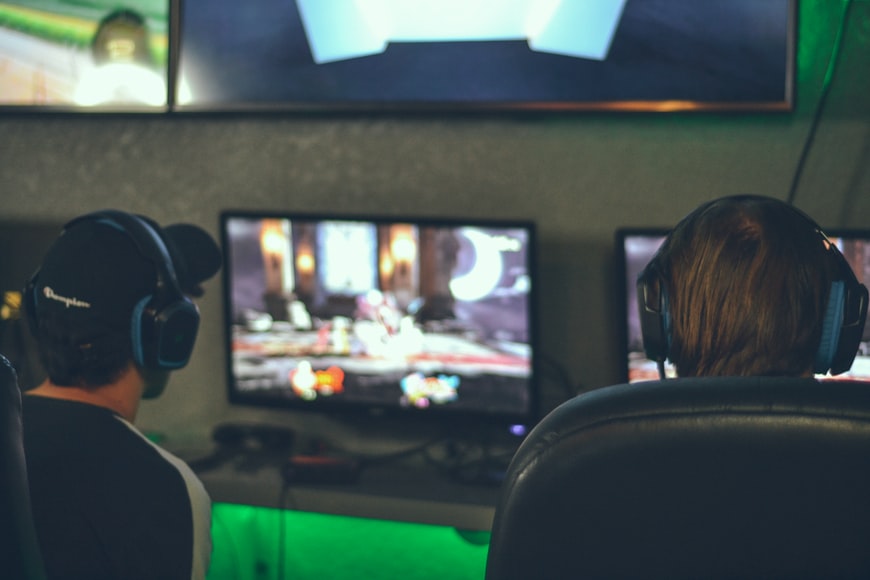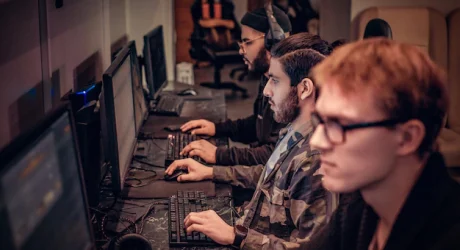Games are a natural part of human activity. When a person plays, they are trying to voluntarily overcome artificially created obstacles.
Games create an emotionally meaningful context that allows one to better work through themes of power, dominance, aggression, anxiety, caring, loss, and joy. Find representatives of such useful games on apppearl. Let’s look at how games affect the development of players.
Cognitive Sphere
A number of studies show that games contribute to the development of cognitive skills. This is especially evident in the example of shooters. People who have played shooters are better at distributing attention, thinking spatially, concentrating, and processing visual information in more detail.
Gameplay increases gray matter in the frontal lobes of the brain
This was shown by neuroimaging studies conducted in Germany in 2013. We are talking about the cortex areas responsible for abstract thinking, decision-making, and solving logical problems.
Games develop critical thinking
Good games, commercial and educational, force systemic thinking. They respond to the gamer’s every move – he has to comprehend the whole system to win.
Gameplay can help to understand what a child is prone to
Genre preferences are directly related to a person’s learning style. It is possible to understand how best to present educational materials to him.
Games are related to creativity
Gamers regularly apply non-standard ways of solving problems. However, it is unclear whether they develop creative thinking, or whether creative people prefer games.
Computer games of different genres develop skills that help people find non-trivial solutions to problems in real life. Along with studies that show the benefits or harms of games, there are works that claim they have no effect on humans.
Consider Reading: PS5 and Xbox series X Game development Difference
Motivation

Video games are the perfect training ground for a growth mentality: one begins to understand that opportunities develop in increments, not instantly. Players are rewarded for each specific task completed within the allotted time frame.
They learn to accept incremental learning and incremental achievement. Games create a “zone of proximal development” for players – an optimal balance between the complexity of tasks (causing frustration) and feelings of success and completion.
Such mechanisms can influence academic performance. During the aforementioned study, respondents solved tasks. Those who played video games more often proved to be more persistent.
Other studies show that games have a positive impact on motivation, engagement, learning, and achievement in math.
Games satisfy critical human needs
Edward Desi and Richard Ryan, the founders of self-determination theory, argued: it is interest that is the main guiding element in intrinsically motivated behavior. A person does not play because of the pressures of the outside world.
It is easier to be competent in a game because the number of skills required for mastering is limited. As a rule, the game reality gives an opportunity to try again and again. This leads to an increase in competence without experiencing the fatality of mistakes made.
One can be as autonomous as one wants in a game, even in a multiplayer game the participant can always act alone and on his own, guided only by his will.
Finally, the multiplayer game assumes inclusion even of the most inveterate individualist in joint actions that are dictated by the organization of the game process itself.
Consider Reading: All-Time Famous Pro-gamers
The Emotional Sphere
Gaming is one of the most vivid sources of positive emotions
In addition, gamers often describe their state while playing as a “flow state.” It is a deep immersion in an activity with inner motivation, interest, bright positive emotions, and a feeling of complete control over what is happening.
Games induce a state of flow because they offer clear and comprehensible goals that are possible for the player to achieve, give immediate feedback, and provide visual and auditory information that helps one concentrate on the task and not get distracted.
The flow state achieves a high level of concentration, heightened awareness, a distraction from one’s self, and complete absorption in the task at hand. Thus, games are the ideal platform for immersion in the state of flow.
Negative emotions in games teach one to cope with them in real life. A person trains skills of emotional regulation, developing adaptive strategies – acceptance, reevaluation of the situation, problem-solving.
Social behavior

Multiplayer games cultivate social skills
Players make decisions, assuming who can and cannot be trusted, how to become a leader, and how to manage a group. At the same time, the unambiguous connection between multiplayer projects and players’ sociality is still under study.
The optimal time for the game is about an hour a day, a study of scientists from Oxford showed. The time a person spends with interactive entertainment affects the degree of prosocial behavior, life satisfaction, problem-solving approach, and social adaptation.
The Therapeutic Learning Effect
Modern publications increasingly mention gamification in medicine and education. “Serious games” do not entertain in the first place, but solve other problems, such as increasing patients’ motivation to take care of their health and speeding up the recovery process.
In particular, Re-mission, created especially for children with cancer, allows players to control a fantastic nanorobot that shoots cancer cells, kills viruses and bacteria that cause infection, controls the signs of nausea, and so on. It teaches children to stick to their chosen course of treatment. More than 200,000 patients are now using the game, and it has been found to be a successful treatment aid.
Also in a number of studies of the elderly have shown that computer games, especially active games, slow down the negative processes associated with age: the decline of cognitive functions, problems with socialization.
Read Also:




























